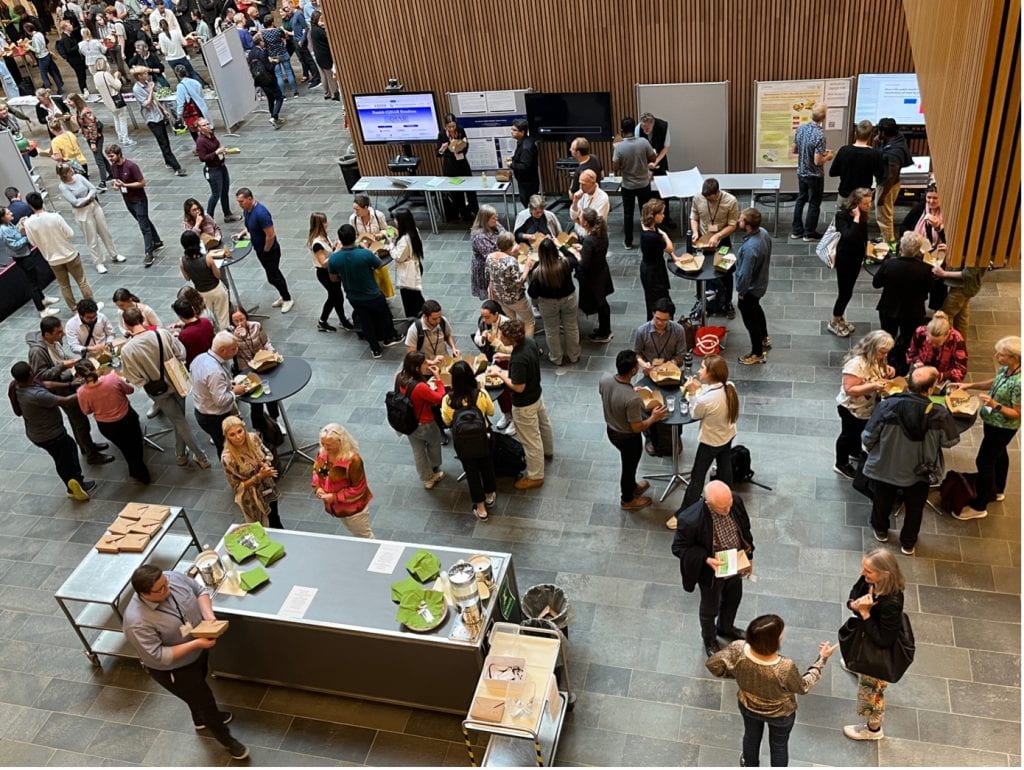This week the Technical University of Denmark presented its ideas for the future of sustainable, healthy and tasty food. The presentation comes after what could be described as a September characterized by one climate crisis after another.

By Theis Nielsen & Leonidas Kaps
The world is experiencing a dramatic increase in extreme weather events, and with eight catastrophic floods occurring within the first 11 days of September, scientists do not doubt that climate change is to blame. The time for action is now and Fridays for Future, a global climate strike movement, is therefore calling to arms. Over the next week, multiple climate strikes will be held across the world, with the Danish strike focusing specifically on agriculture. Seeing as food production is responsible for more than a third of global greenhouse gas emissions, it’s clear that it’s one of the most important topics.
In fact, about 14.5% of man-made CO2 emissions come from animal agriculture and to ensure that the worldtemperature doesn’t increase by more than 1.5 degrees Celsius, the EU recommends a meat intake of only 15.9 kg a year per citizen. However, a report recently showed that Denmark is one of the worst countries at reducing their meat intake, with an average of 95 kg a year per citizen. Furthermore, the EU recommends a suggested emission of only 3 tons of CO2 per person a year, all the while the average Dane emits about 13tons of CO2 per year, with 20% of those attributable to meat consumption. But why do Danes consume so much meat?
Denmark has historically been an agricultural country, with a diet consisting primarily of meat, potatoes, andsauce. One could easily call these eating habits a bit conservative, but many Danes view them as a national tradition, and Denmark, like many other European countries, is therefore facing the challenge of balancing its culinary traditions with more sustainable and environmentally friendly ones.
A plant-based future
The Food Institute at the Technical University of Denmark (DTU) is leading the way in research on plant-based food, and on Thursday the 14th of September they threw a big conference to show just how far they have come. Here attendees could hear about how they ensure that plant-based foods are healthy, safe, sustainable and taste good:
“Whenever you mention plant-based food, people are always quick to say it doesn’t have enough nutrition orprotein or that it tastes horrible, but that isn’t true,” says Mikkel Hansen, a postdoc at DTU and director of the university’s Food Pilot Plant.
The Pilot Plant is a rather new initiative from DTU, where its scientists get to work with the same productionprocesses the food industry uses – just on a smaller scale. Just a week before the food conference Mikkel Hansen handed in his research on green biomasses as a source of protein for human consumption. The research specifically focuses on Alfalfa protein:
“Alfalfa has a lot of nutritional and environmental properties but hasn’t been approved for human consumption. So, I decided that would be my focus pretty early in the research phase.”

Among some of these properties he mentions a protein content of 20% which he successfully has increased to 48%, a protein known as RuBisCO which would allow Alfalfa to replace both milk and eggs. The fact that the Alfalfa plant is able to fix nitrogen, have no natural pests and needs very small amounts of water to thrive, add to the sustainable value of this plant. However, he also points out that the taste isn’t all that great:
“When we process the plant, we get a green protein with a piercing taste of grass. However, through refining we can get a white protein with barely any taste. The white protein can therefore be used for human consumption, while the by-product, the green protein, can be used for animal consumption.”
As mentioned, Alfalfa has previously been restricted for human consumption, but Mikkel Hansen hopes his research can help convince the EFSA to reconsider their approval of Alfalfa:
“This plant can be used in so many plant-based products, and even replace the soybean entirely within agriculture. That’s a huge step towards sustainability and if we get the approval, we know that the industry is ready to help us save the planet.”